If you're a homeowner, you know that your roof is one of the most essential parts of your home. It protects you and your family from the elements and helps keep your home in good condition.
But what happens when your roof needs repairs or replacement? Finding a roofer can be daunting, but it's essential to ensure that your roof is in good hands.
This article will review some key factors when selecting a roofing contractor
Understanding your roofing needs is the first step in choosing a contractor. Do you need a repair or a complete replacement? What kind of roofing material do you want to use?
Knowing the answers to these questions will help you narrow down your search. Once you know your needs, you can start evaluating contractor credentials.
When choosing a roofing contractor, it's important to understand your roofing needs. This includes assessing your roof and understanding the different roofing types available. In this section, we'll cover these topics in more detail.

Before you hire a roofing contractor, it's important to assess your roof. This will help you determine the scope of the project and what type of roofing services you need. Some things to consider when assessing your roof include:
Once you've assessed your roof, you can better communicate your needs to your roofing contractor.
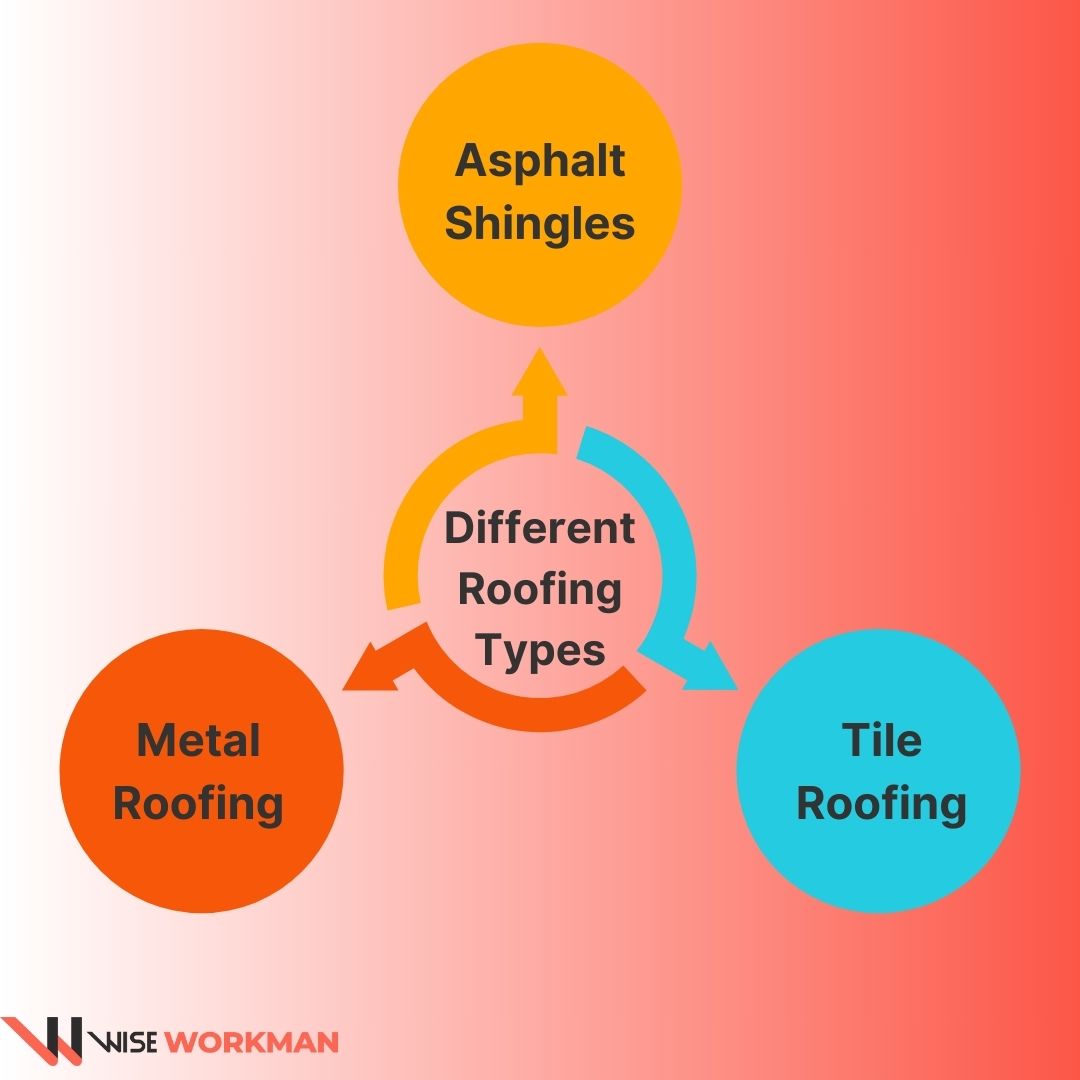
There are many different types of roofing available, each with its own advantages and disadvantages. Some common roofing types include:
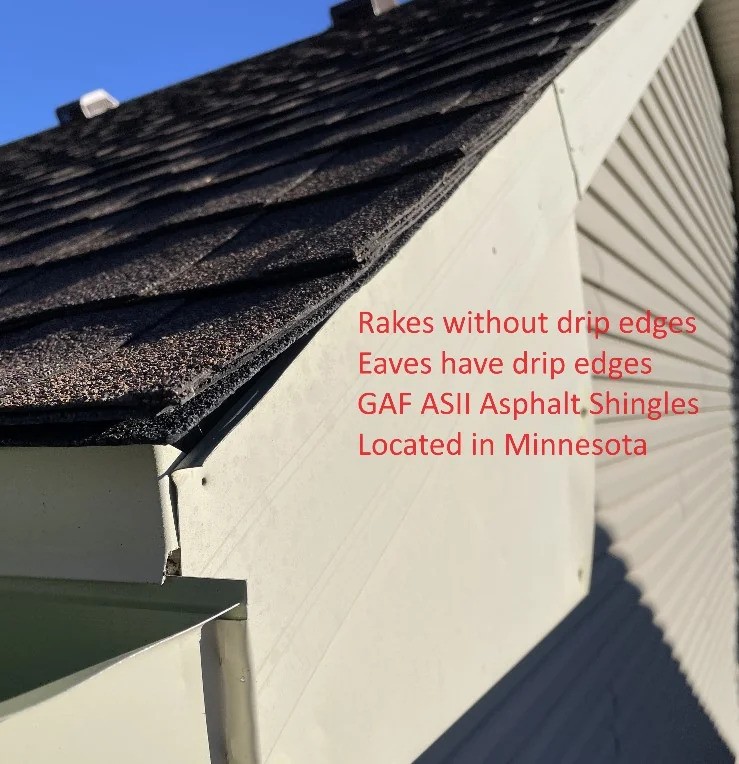


When choosing a roofing type, it's important to consider factors such as cost, durability, and energy efficiency. Your roofing contractor can help you choose the best roofing type for your needs and budget.
By understanding your roofing needs, you can make an informed decision when choosing a roofing contractor. Assess your roof and consider the different roofing types available to find the best option for your home.
When it comes to choosing a roofing contractor, evaluating their credentials is an essential step to ensure that you are working with a reliable and skilled professional.
Here are some factors to consider when evaluating contractor credentials:
One of the first things you should check when evaluating a contractor is their licensing. A valid license indicates that the contractor has met the minimum requirements set by the state or local government to operate legally.
You can check the license status of a contractor by contacting your state's licensing board or searching their online database.
Additionally, look for contractors who have earned certifications from reputable organizations such as CertainTeed or GAF.
These certifications demonstrate that the contractor has undergone training and testing to meet high standards of quality and professionalism in the roofing industry.
Another essential factor to consider when evaluating a roofing contractor is their commitment to professional standards.
Look for contractors who belong to professional organizations such as the National Roofing Contractors Association (NRCA) or the Roofing Contractors Association of Texas (RCAT).
These organizations provide resources and support to contractors committed to upholding high standards of quality and ethics in the roofing industry.
Ask the contractor if they have insurance coverage for their work. A reputable contractor will carry liability insurance and workers' compensation insurance to protect themselves and their clients in case of accidents or injuries.
By evaluating a contractor's credentials, you can ensure that you work with a professional with the knowledge, skills, and commitment to provide high-quality roofing services.
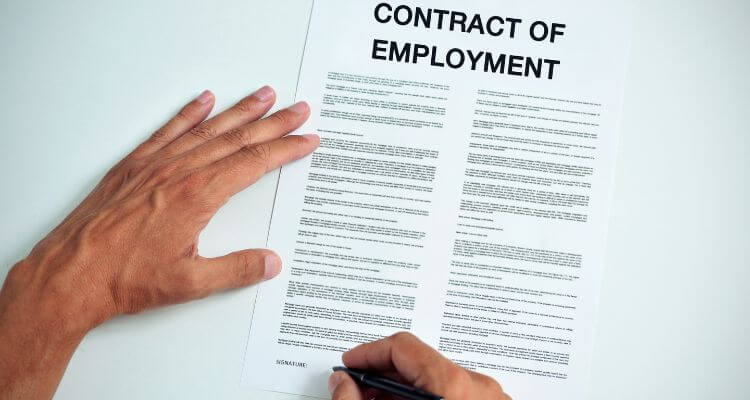
Wondering how to choose a roofing contractor?
When it comes to choosing a roofing contractor, experience and expertise are essential. A skilled and knowledgeable team can ensure that your roof is installed or repaired correctly and efficiently, protecting your property and investment.
Here are some things to consider when evaluating a roofing contractor's experience and expertise:
One of the first things to consider is how long the contractor has been in business. A contractor in business for several years will likely have more experience and a better track record than a newer contractor.
A long-standing roofing contractor is more likely to have a proven reputation in the community, which can give you peace of mind knowing that your roofing project is in good hands.
Another essential factor to consider is the contractor's specialization. Some roofing contractors specialize in residential roofing, while others focus on commercial roofing.
Choosing a contractor with experience and expertise in the roofing project you need is essential.
For example, if you need a new roof for your home, you should choose a contractor who specializes in residential roofing.
Similarly, if you need a new roof for your commercial property, you should choose a contractor specializing in commercial roofing.
When evaluating a roofing contractor's experience and expertise, it's essential to ask for references and check their portfolio of completed projects. This will give you an idea of their experience level and the quality of work they can deliver.
You can also check online reviews and ratings to see what other customers say about their experience with the contractor.
Choosing a roofing contractor with experience and expertise is crucial to ensuring that your roofing project is completed successfully.
By evaluating a contractor's experience and specialization, you can make an informed decision and choose a contractor who can deliver the results you need.
When it comes to choosing a roofing contractor, reputation and reviews are crucial factors to consider.
You want to make sure that you hire a contractor who has a good reputation in the industry and positive reviews from previous clients. Here are some things to keep in mind when evaluating a contractor's reputation and reviews.
One of the best ways to get a sense of a contractor's reputation is to read testimonials from previous clients.
Testimonials can give you a good idea of what it's like to work with a particular contractor and can help you determine whether they are a good fit for your needs.
When reading testimonials, look for comments about the quality of the work, the professionalism of the contractor and their team, and the overall experience of working with the contractor.
If you see a lot of positive comments about these things, it's a good sign that the contractor is reputable and does quality work.
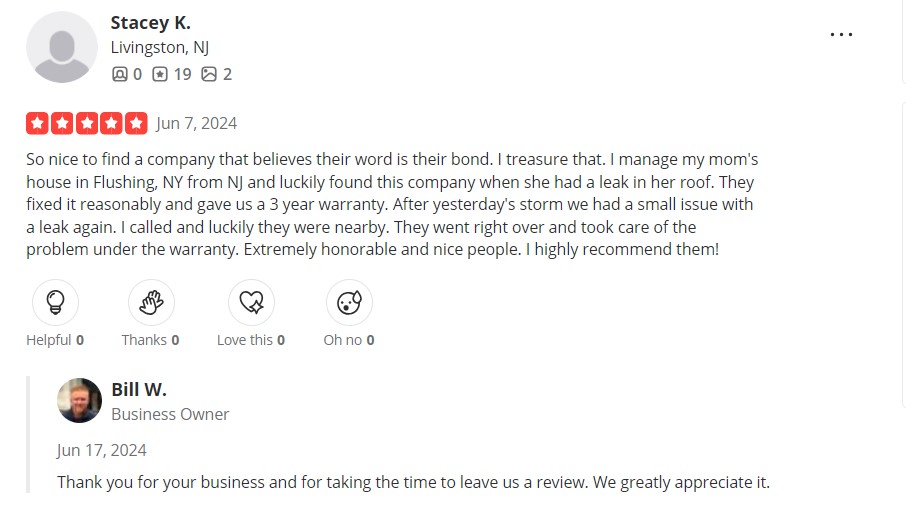
In addition to reading testimonials, it's also essential to check online reviews. Websites like Yelp, Google, Wise Workman, and Angie's List can be great resources for finding reviews of contractors in your area.
Look for contractors with a high overall rating and positive comments from previous clients.
Keep in mind that not all reviews are created equal. Some reviews may be biased or fake, so you must read various reviews and use your judgment to determine which ones are legitimate. Additionally, pay attention to how the contractor responds to negative reviews.
A contractor who takes the time to address negative feedback and make things right with the client is a good sign that they care about their reputation and take their work seriously.
Overall, taking the time to research a contractor's reputation and reviews can help you find a reliable and trustworthy contractor who will do quality work on your roof.
When choosing a roofing contractor, it's essential to examine their past work to ensure they have the capability to complete your project to your satisfaction.
Here are two ways to verify a contractor's past work:
One way to verify a contractor's capability is by examining their portfolio. A portfolio is a collection of their past projects, which can give you an idea of their expertise and the quality of their work.
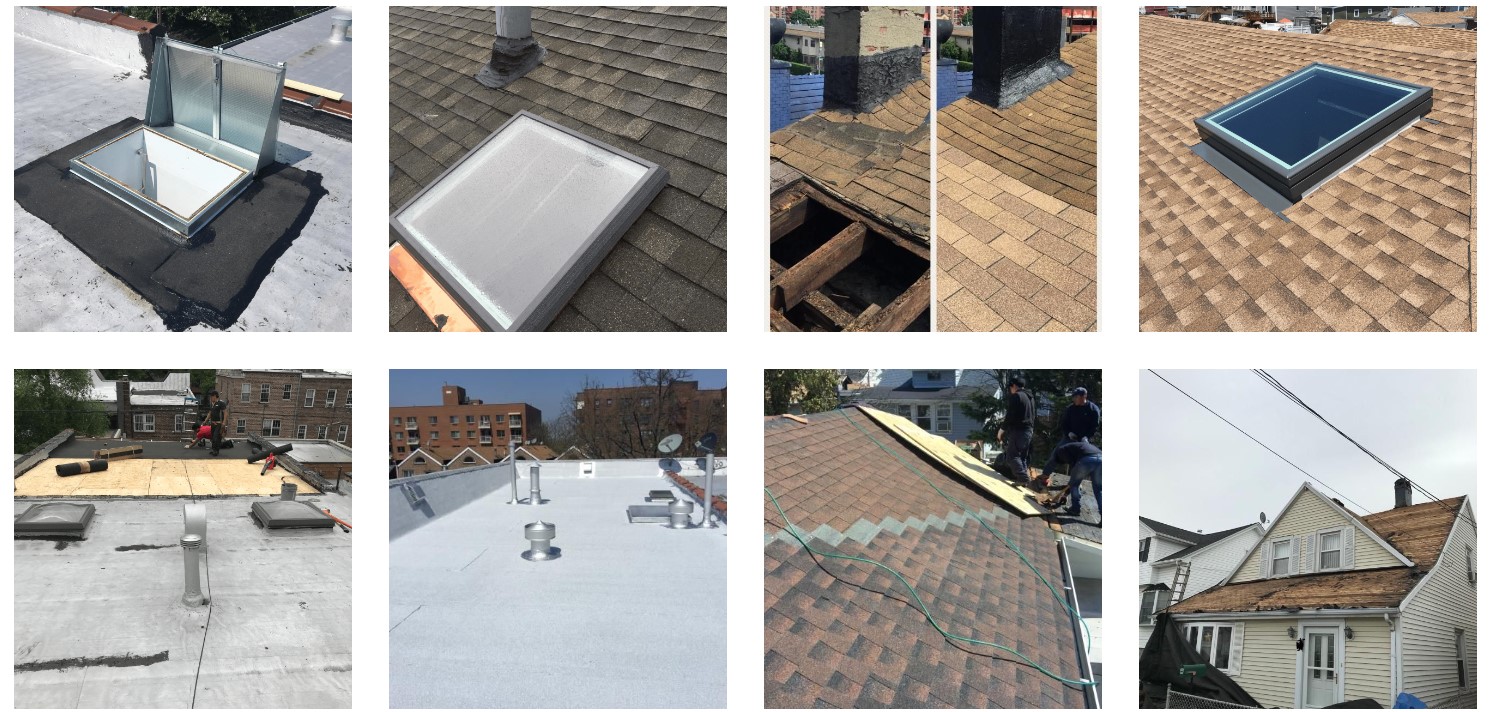
A good portfolio should have a variety of projects that showcase the contractor's skills. When examining their portfolio, look for projects that are similar to yours in terms of size, type, and complexity. This will give you an idea of how the contractor handles projects similar to yours.
Examining their case studies is another way to verify a contractor's capability.
A case study is a detailed analysis of a past project, which can give you an idea of how the contractor approaches a project, their problem-solving skills, and their ability to complete a project on time and within budget.
When examining their case studies, look for projects similar to yours in size, type, and complexity. This will give you an idea of how the contractor handles projects similar to yours.
Examining a contractor's portfolio and case studies can give you an idea of their past work and capability.
When examining their portfolio and case studies, look for projects similar to yours in size, type, and complexity. This will give you an idea of how the contractor handles projects similar to yours.
When it comes to hiring a roofing contractor, communication and professionalism are key factors that you should consider.
A contractor with excellent communication skills will keep you informed about the progress of your project, while a professional contractor will ensure that the work is done to your satisfaction.
Here are some tips to help you evaluate a contractor's communication and professionalism:
The initial consultation is your opportunity to get to know the contractor and their team. During this meeting, the contractor should take the time to listen to your needs and concerns.
They should also ask questions to ensure that they understand your project requirements.
A professional contractor will provide you with a detailed project proposal that outlines the scope of work, timeline, and budget.
Effective project management is essential for a successful roofing project. A professional contractor will have a project manager who will oversee the project from start to finish.
The project manager should keep you informed about the progress of the project and address any concerns that you may have. They should also ensure that the project is completed on time and within budget.
To ensure that your roofing project is completed to your satisfaction, you should look for a contractor who has a track record of professionalism, punctuality, and adherence to safety standards.
A professional contractor will also be insured and licensed, which will give you peace of mind knowing that you are protected in case of any accidents or damages.
When it comes to choosing a roofing contractor, cost is an important factor to consider.
You want to make sure you are getting a fair price for the work being done, but you also want to ensure that the work is of high quality. Here are some things to keep in mind when it comes to cost and financing.
Before hiring a roofing contractor, getting multiple estimates is essential. This will give you an idea of the average cost for the work you need to be done.
When getting estimates, ensure the contractor provides a detailed breakdown of the costs. This should include the cost of materials, labor, and any additional fees or charges.
It's also essential to ask for references from the contractor. This will give you an idea of the quality of work they provide and whether or not they are trustworthy.
You can also check online reviews to see what other customers say about their experience with the contractor.
Roofing pricing can vary depending on several factors, including the size of your roof, the type of roofing material you choose, and the job's complexity.
Some materials, such as metal or slate, can be more expensive than others, such as asphalt shingles.
Regarding cost management, being upfront with your contractor about your budget is essential. They can suggest alternative materials or solutions that help keep costs down without compromising quality.
Some roofing contractors offer financing options, such as payment plans or loans, to help make the cost more manageable. Make sure to ask your contractor about these options if you need them.
Overall, it's essential to research and be upfront with your contractor about your budget regarding cost and financing. With planning and communication, you can ensure that you are getting the best possible value for your money.
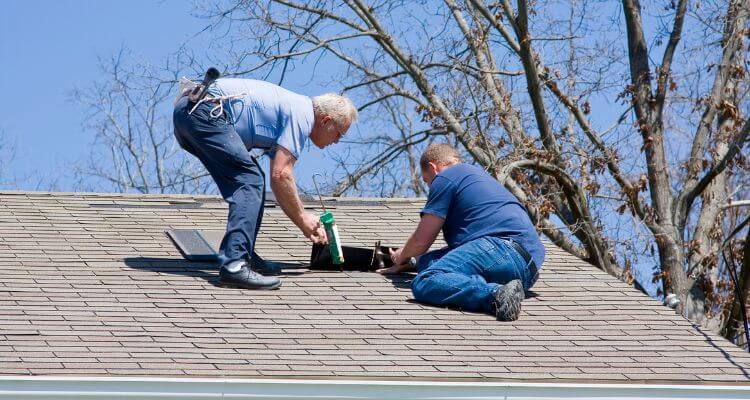
When choosing a roofing contractor, it's important to consider their insurance coverage and warranty terms. This can help protect you from any potential issues that may arise during or after the roofing project.
Before hiring a roofing contractor, make sure they have liability insurance and workers' compensation coverage.
Liability insurance covers any damages that may occur to your property during the roofing project. Workers' compensation coverage protects you from any liability if a worker is injured while working on your property.
It's important to ask for proof of insurance and verify that it is up to date. You can also check with your state's licensing board to ensure that the contractor is properly licensed and insured.
In addition to insurance coverage, it's also important to consider the warranty terms offered by the roofing contractor. Most roofing materials come with a manufacturer's warranty, but it's important to also have a workmanship warranty from the contractor.
A workmanship warranty covers any issues that may arise due to errors in the installation process. Make sure to ask for a written warranty that clearly outlines the terms and length of coverage.
Overall, choosing a roofing contractor with proper insurance coverage and a strong warranty can give you peace of mind and protect you from any potential issues.
Before hiring a roofing contractor, it's important to ask the right questions to ensure that you are working with a reputable and experienced professional. Some of the top questions to ask include:
Asking these questions can help you make an informed decision and avoid potential issues down the road.
A reputable roofing contractor should have the necessary credentials to perform the work safely and effectively. Some of the credentials to look for include:
There are several ways to determine if a roofing company is trustworthy. Some things to look for include:
If you have any doubts about a roofing company's trustworthiness, it's best to look elsewhere.
When selecting a roofer, there are several red flags to watch out for. These include:
If you encounter any of these red flags, it's best to keep looking for a more reputable and trustworthy roofer.
To verify the legitimacy and reputation of a local roofer, you can:
Doing your due diligence can help you avoid scams and unscrupulous contractors.
Effective communication is key to a successful roofing project. Some best practices for communicating with a roofing contractor include:
By following these best practices, you can ensure that you and your roofing contractor are on the same page and working toward.
In summary, to answer the question of how to find a good roofing contractor is that there are multiple factors you will need to consider. The first step is to consider your roofing needs and what type of roof you want.
Secondly, evaluate your contractor's credentials through their licenses, years of experience, past work, specializations and reviews. Moreover, you will need to consider prices and get estimates.
Lastly, consider the coverage and warranty being offered by the contractors that you are thinking about employing.
Following these steps will help you reach a decision on which contractor you need to hire for your roofing needs!